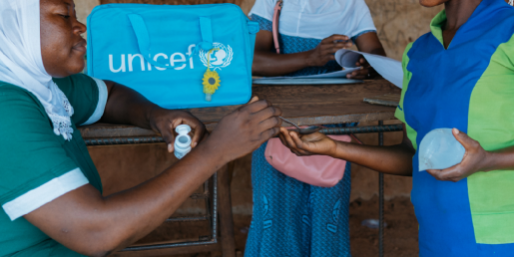The Girls’ Iron-Folic Acid Tablet Supplementation (GIFTS) Programme is a school-based integrated nutrition and health intervention launched in four regions of Ghana (Northern, Volta, Brong Ahafo, and Upper East) to address the high prevalence of anemia among adolescent girls (10-19 years). Implemented between 2017 and 2018, the program provided weekly iron-folic acid (IFA) supplements to both in-school and out-of-school girls. It incorporated nutrition education, anemia prevention, and hygiene promotion. The intervention was supported by UNICEF, the Ghana Ministries of Health and Education, Emory University, and the US CDC.
Key Findings and Impacts:
- Anemia Prevalence Reduction:
- The prevalence of anemia decreased from 25% at baseline to 19.5% at follow-up, reflecting a 26% reduction after adjustments.
- Hemoglobin levels increased among participants during the program.
- Knowledge and Awareness:
- Awareness about anemia and its prevention improved significantly:
- Knowledge of anemia increased from 64% to 90.9%.
- Awareness of IFA tripled, from 27% to 92%.
- Awareness of dietary practices, such as consuming green leafy vegetables to prevent anemia, rose by 21 percentage points.
- Awareness about anemia and its prevention improved significantly:
- IFA Consumption:
- On average, each girl consumed 22.2 IFA tablets during the academic year.
- 95% of eligible students consumed at least one tablet, while 74.6% consumed at least 10 tablets.
- Implementation and Challenges:
- The program achieved high operational fidelity, with IFA distribution occurring in over 93% of schools.
- Challenges included misconceptions about IFA tablets, such as their being a form of contraception, and insufficient sensitization efforts at the community level.
- Health Education:
- Only 45.9% of students reported receiving health talks during the academic year.
- Key messages included the importance of consuming iron-rich foods and the link between menstruation and anemia.
- Program Evaluation:
- The impact evaluation conducted in 60 schools in the Northern and Volta regions showed positive changes in anemia prevalence, knowledge, and IFA consumption.
Key Information for Nutrition Education and Interventions:
- Nutrition Education Themes:
- Promote the consumption of iron-rich foods (green leafy vegetables, meats, and legumes).
- Emphasize anemia prevention strategies, such as hygiene, regular IFA supplementation, and dietary diversity.
- Community Engagement:
- Address cultural misconceptions about supplements through community sensitization campaigns.
- Include both boys and girls in health education sessions to increase overall knowledge.
- Programmatic Recommendations:
- Expand to include non-school adolescents using community health outreach.
- Use innovative communication tools (e.g., posters, leaflets) to improve awareness.
- Strengthen supply chain management to ensure consistent IFA availability.
- Monitoring and Evaluation:
- Regularly track IFA distribution and consumption at the school and community levels.
- Integrate anemia testing and education into broader adolescent health initiatives.
Downloads
The Girls’ Iron-Folic Acid Tablet Supplementation (GIFTS) Programme




